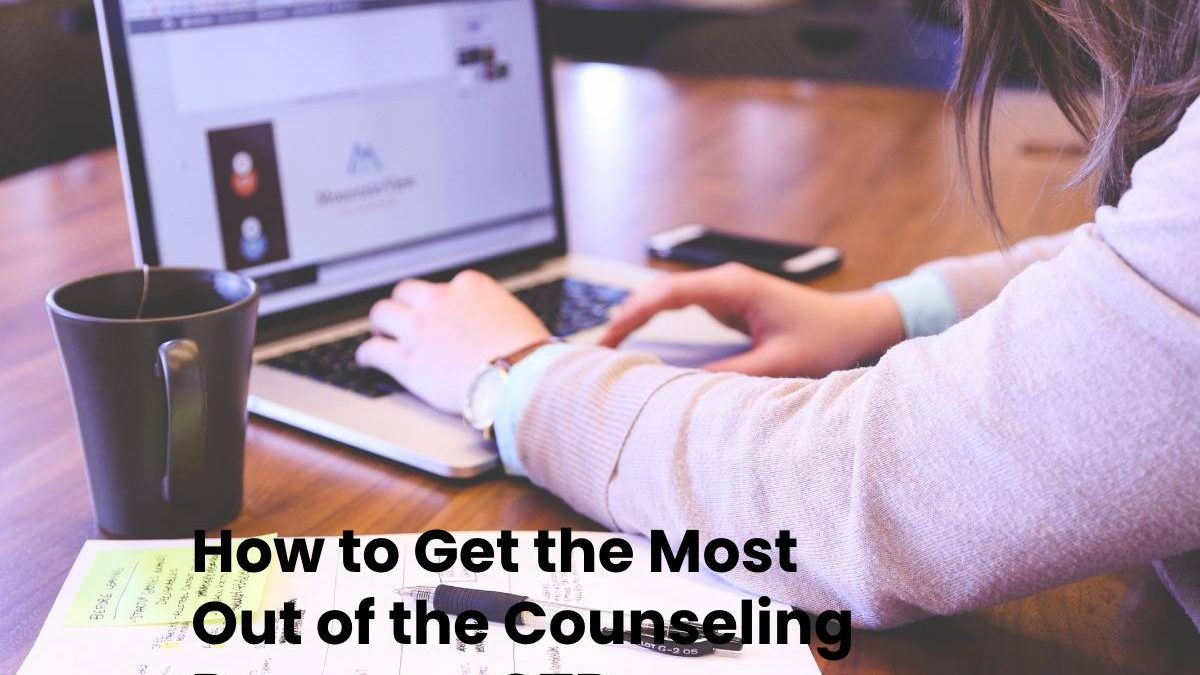Maybe you’ve taken the first step and scheduled a session with a counselor, but you’re not really sure what you need to do in order to really improve your mental health and work through any problems you’ve been having. Below, find six simple tips to help you get the most out of the counseling process.
1. Consider your goals for the process.
Everyone has different reasons for going to counseling, so it’s only natural that goals for the process can vary quite a bit. Maybe you want to gain control over your anxiety, or perhaps you want to improve your motivation and concentration at work. Or maybe you’re going to counseling to work through a difficult situation that’s been affecting you negatively. Regardless of your reasons for attending counseling, be sure to take the time to figure out exactly what your goal is. When you know what you want to achieve, it’s much easier to take the steps to achieve it.
2. Keep an open mind, especially in the beginning of the process.
Counseling might seem a bit strange to you if you’ve never spoken with a counselor before. Even if you have attended a few counseling sessions in the past, the counselor you’re working with now might have a completely different approach than the professional you’ve worked with before. Therefore, be sure to keep an open mind, rather than dismissing or writing off things that your counselor says. Give the process a real chance, rather than questioning everything about it. Once you’ve gone to a few sessions, you’ll begin to understand why the process works the way it does, and you’ll be glad that you gave it an honest try! For more mental health advice, take a look at MyTherapist.
3. Reflect on your counseling sessions and apply what you’ve learned.
Whether you go to counseling once a week or more infrequently, if you want to make progress, it’s necessary to reflect on what was said and established during your counseling sessions. Oftentimes, counselors will give suggestions as to what you should do if certain situations arise. It’s a good idea to write these suggestions down, either during your session or directly afterwards, so that you don’t forget. Then, make an effort to apply the things you’ve learned during counseling to your life in between sessions. This is how you make progress! If you simply attend counseling sessions once a week but don’t give your counselor’s suggestions a second thought unless you’re at their office, chances are you won’t notice as much improvement as you’d like to.
4. Be your true, authentic self.
An important part of being a counselor is treating your clients with respect–and without judgment. You can rest assured that no matter who you are or what you’ve done in the past, your counselor will not judge you or treat you any differently. In order for counseling to work, it’s important to be yourself, whatever that means to you. Don’t worry about acting a certain way, playing a character, or putting on a show for your counselor. If you want to move forward and improve your mental health, present yourself as you are.
5. Don’t hold back.
Similar to the last point, avoid holding back information from your counselor. You may be afraid of what they might think of you if they knew certain things about you, but remember: It’s their job to listen with a nonjudgmental mindset, and to help you move forward. If you’re holding things back, then they can’t be addressed. Counselors aren’t mind-readers; they can only work with the information you provide to them. So be sure to open up and tell them anything that’s been weighing you down.
6. Don’t expect your counselor to “fix” you.
The counseling process does not work in the same way as a trip to a medical doctor. When you see a medical doctor, you’ll have an examination, get a diagnosis, and the doctor will prescribe medication or another form of treatment, simple as that. But with counseling, it’s important to note that a mental health professional cannot “fix” you. You will not sit down in the counselor’s office and walk out a new person without having to put any effort in yourself. Instead, your counselor will help you to fix yourself. They’ll give you the insight and the tools that you need to move forward, but you are the one facilitating growth and healing. They’re just there to help you along the way.
The Bottom Line
Scheduling a session with a counselor is just the first step. If you want to get everything you can out of the counseling process, it’s very important to first identify your goals so that you know what you’re working toward. Then, be sure to keep an open mind. Between counseling sessions, reflect on what was discussed and on any suggestions your counselor has given you, and apply them to your life. Of course, it’s very important to be yourself and not to hold back information from your counselor as well. Finally, remember that your counselor doesn’t have a magical solution for you, and they cannot “fix” you. Instead, they’ll help you to fix yourself throughout the counseling process.
Marie Miguel Biography
 Marie Miguel has been a writing and research expert for nearly a decade, covering a variety of health-
Marie Miguel has been a writing and research expert for nearly a decade, covering a variety of health-
related topics. Currently, she is contributing to the expansion and growth of a free online mental health
resource with MyTherapist.com. With an interest and dedication to addressing stigmas associated with
mental health, she continues to specifically target subjects related to anxiety and depression.
Related posts
Sidebar
Recent Posts
The Rise of Legal Tech Startups: What Law Firms Need to Know
Introduction The legal profession, often rooted in tradition and resistant to change, faces a technological revolution. Legal tech startups are…
Shiba Inu vs. Dogecoin: The Battle of the Meme Coins
In the realm of cryptocurrency, there has been an ongoing battle between two popular meme coins, Shiba Inu and Dogecoin….




Review How to Get the Most Out of the Counseling Process.